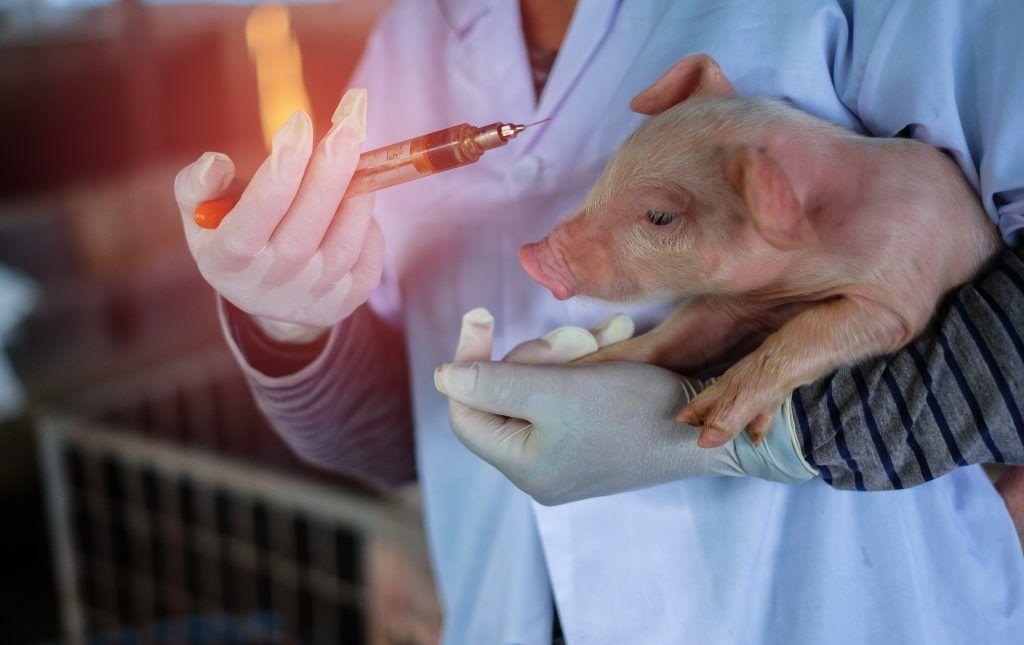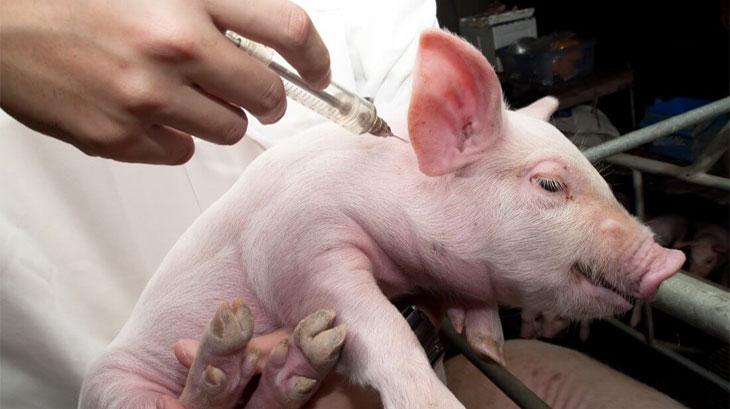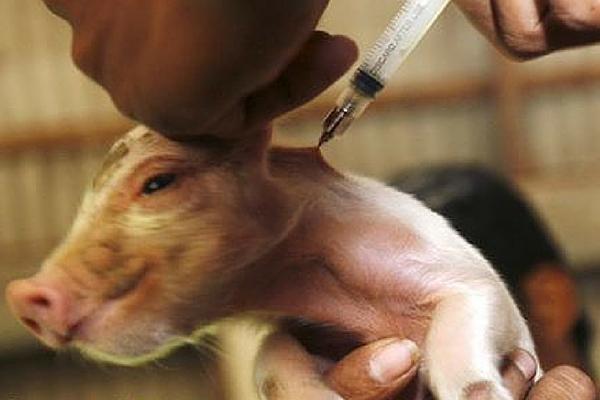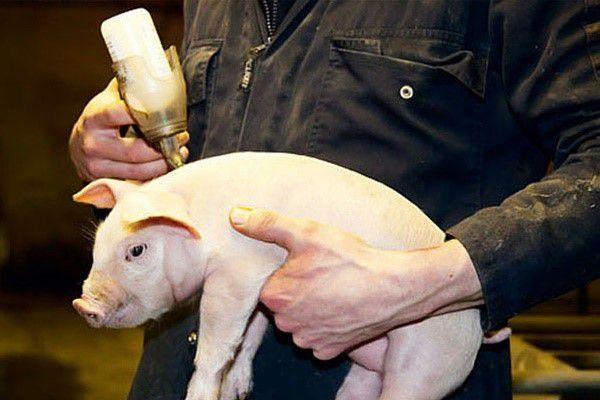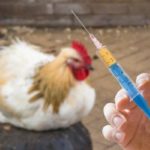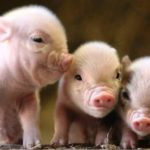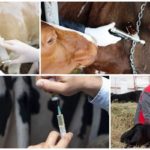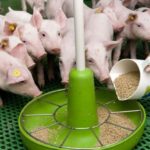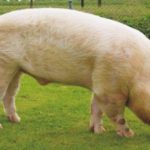Vaccinations against dangerous diseases help preserve the lives of piglets, guarantee weight gain and full development. Large pig farms strictly monitor compliance with the vaccination schedule. The quality of meat is subject to strict testing, because many pork pathologies are dangerous for people. When raising pigs at home, you need to know what vaccinations piglets need in order to preserve the health of the animal and get a quality product.
What vaccinations do piglets need?
Large pig farms carry out vaccinations in full, since there is a high risk of developing a mass epidemic and loss of livestock. Owners of one or more piglets often believe that due to the lack of contact with other people's pigs, their pets are protected from disease. But infections are often transmitted to piglets by insects, people, other domestic animals, and rodents.
A prudent owner will protect his pets from possible dangers, preserving the health of the piglets, money and labor invested. It is better to contact your veterinary service to select the set of necessary vaccinations. Specialists will draw up a vaccination schedule taking into account the epidemiological situation in the region, select only the necessary items and effective drugs.
For salmonella
A dangerous infection often affects suckling piglets aged 1.5-4 months. The disease is characterized by an acute course with diarrhea and fever. The intestinal mucosa is affected. In the acute form, up to 80% of young animals die. For protection, associated vaccines PPD and SPS are used, which additionally prevent infection with streptococci and pasteurella. Standards:
- PPD – 4 grams, twice;
- ATP – 2 grams, twice every 2 days, revaccination every month.
One vaccination gives piglets immunity from several dangerous diseases.
From the plague
Anti-plague vaccinations for pigs are mandatory, as the disease spreads quickly and leads to the death of animals with almost 100% probability. The disease develops within a week and is accompanied by a rise in temperature, loss of appetite, vomiting, weakness, and diarrhea. Classical plague can occur in different forms; piglets die within 1-2 weeks.
The KS vaccine is administered twice - at the age of 1-1.5 months, then revaccination after 60 days.
Against faces
The disease is caused by the bacterium Erysipelothrix insidiosa. Erysipelas spreads quickly and is characterized by skin rashes, thirst, drowsiness, and cardiac dysfunction. For vaccinations, BP-2, GOA or PLAAR vaccines are used. According to the scheme, 3 vaccinations are required, the first is given at 16-17 weeks, repeated after 2-4 weeks, and completed at the age of 5-7 months.
From worms
Helminths disrupt digestive processes, prevent young animals from gaining weight, and reduce the body’s immune defense. Many types of worms provoke the development of dangerous diseases. For vaccinations, the drugs Iversect, Ivermec, and Levamisole are used.
From rickets
A severe chronic disease is caused in piglets by a lack of vitamin D, calcium salts and phosphorus. Rickets is manifested by disturbances in the gastrointestinal tract, delayed bone growth, loss of strength and skeletal deformities. Piglets are vaccinated on the 10th day, administering preparations containing potassium, sodium and calcium. Chalk, fish oil, and bone meal are added to the feed. Also supports nursing pigs. To prevent rickets, piglets are irradiated with fluorescent and mercury-quartz lamps.
For leptospirosis
Leptospirosis is carried by rodents; the disease is characterized by jaundice, fever, and necrosis of mucous membranes and skin. The VGNKI vaccine is administered to piglets twice to form stable immunity.
For foot and mouth disease
FMD vaccinations are not mandatory; they are carried out based on the epidemiological situation in the region. The decision on the need for vaccination is made by the veterinarian. For piglets, Immunolactone is used intramuscularly.
From Teschen's disease
The need for vaccination against enzootic encephalomyelitis (Teschen disease) is determined by veterinarians.The disease most often affects young animals aged 1-2.5 months. The vaccine is administered twice with a break of 2-3 weeks to form stable immunity.
Basic rules of vaccination
Vaccines will help build immunity if the vaccination is done properly. Here are the basic rules for vaccinating an animal:
- Absolutely healthy piglets are vaccinated. A preliminary examination is carried out and the condition is monitored for 1-2 days.
- Before using the drug, read the instructions, select the dose, and determine the injection site.
- Dosage is determined by weight, age, and other recommended parameters.
- It is necessary to wear protective equipment – an apron, gloves, and disinfect the animal’s skin area.
- Find out whether dilution of the drug is required - use saline solution. The prepared solution for injection is administered without delay and is not stored.
- You should enlist help - invite a person who will hold the nimble pig.
- If subcutaneous administration of the vaccine is indicated, it is injected into the area behind the ear or into the inner thigh. After treatment with an alcohol-containing substance, the skin is pulled back and the needle is inserted at an angle of 45°.
- Intramuscular injections are made into the neck and thighs, pointing the syringe perpendicular to the body.
Important: sterility should be maintained, the injection site should be thoroughly disinfected, and a separate syringe should be used for each individual.
After vaccination, the animals are provided with comfortable conditions and provided with enhanced nutrition. Possible temporary deterioration in health does not require treatment. The vaccinated young animals are observed for 2-3 days; if the piglets get worse, they contact a veterinarian.
Vaccination schedule
The vaccination schedule is drawn up together with the veterinarian, focusing on the regional problems of pigs and the characteristics of a particular piglet. Approximate vaccination plan:
| Disease | Drug (vaccine) | Term | Notes |
| Anemia | Iron supplements (Suiferrovit, Ferroglyukin) | First days of life | |
| Rickets | Potassium, calcium | 10 day | Irradiation with a lamp will complement vaccination |
| Salmonellosis | PPD, SPS | Day 20 | Revaccinations required according to instructions |
| Plague classic | KS, LK-VNIIVViM, others | 40-45 day | |
| Leptospirosis | VGNKI | Day 45 | Again in a week |
| Helminthiasis | Iversect, Ivermec, Levamisole | 8 weeks | After 4-5 weeks revaccination |
| Teschen's disease | Vaccine against Teschen's disease | 60 days | According to indications |
| foot and mouth disease | Immunolactone | 2-2.5 months | |
| Erysipelas | VR-2, GOA or PLAAR | 17 weeks | Revaccinations after a month, the last one – 7 months |
Modern vaccines are safe for animals and can form lasting immunity. You should not refuse vaccinations in the hope that the infection will pass by and the piglets will not get sick even without vaccinations. Treatment often turns out to be ineffective; young animals die from diseases that could be protected from with one injection.

